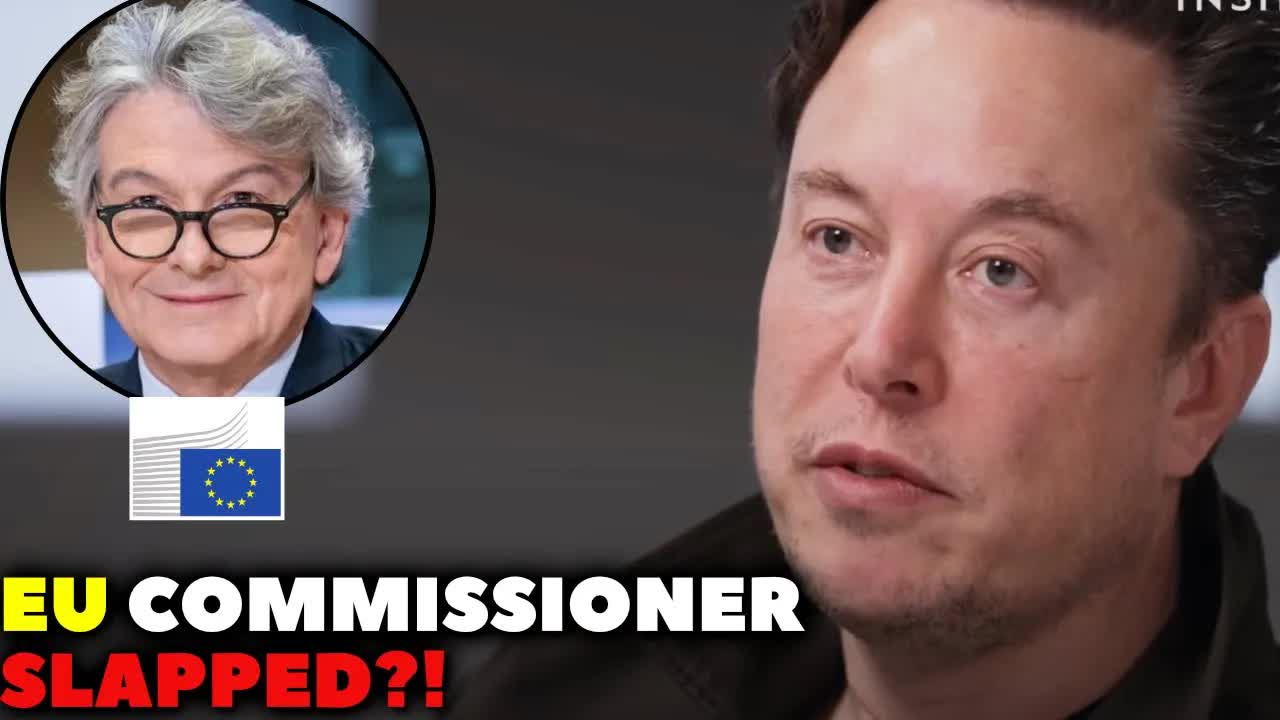All round
EU Tensions Rise as Commissioner’s Letter to Elon Musk Sparks Controversy
In a surprising turn of events, a letter from EU Commissioner Thierry Breton to Elon Musk has ignited a firestorm within the European Union.
The correspondence, which was posted on X (formerly Twitter), has drawn criticism not just for its content but also for the manner in which it was delivered.
As reports circulate about Breton’s alleged rogue behavior, many are left wondering about the implications of this unexpected communication.
Breton’s letter served as a warning regarding the potential amplification of harmful content on Musk’s platform.
However, the timing of this message raised eyebrows, particularly as it coincided with Breton’s conversation with Donald Trump.
Trending:
- Meghan Markle Steals the Spotlight Again: A Royal Engagement Gone Awry
- “Harry and Meghan’s Tense Moment: A Marriage Under Scrutiny”
- Tension Unveiled: Frances Marquez’s Discontent with Meghan Markle in Colombia
- Elton John’s Scathing Remarks Leave Meghan Markle in Tears at Music Awards
- Meghan Markle’s On-Set Outburst: A Diva in Disguise?
Critics argue that sending such a strong warning just before a high-profile discussion could be interpreted as politically motivated interference.
The backlash against Breton’s actions has been swift.
EU officials have publicly rebuked him, claiming that his letter was neither sanctioned nor coordinated with other top leaders within the Commission.
This lack of approval has led to accusations that Breton is operating independently, raising concerns about his authority and decision-making process.
Many observers find the letter itself to be excessive and misdirected.
While Musk does indeed own the platform, the letter should have been directed to the actual executives responsible for its operations.
By addressing Musk personally, the EU appears to be sidestepping proper channels, which many view as inappropriate.
Additionally, the letter’s existence during ongoing investigations into the platform’s practices raises questions about its necessity.
Critics argue that if the EU is already scrutinizing the platform, sending another letter seems redundant and only serves to amplify concerns about the Commission’s credibility.
The political ramifications of this letter cannot be overlooked.
With Musk openly supporting Trump, the EU’s warning could be seen as an attempt to influence the upcoming elections.
Many believe that such actions could sway public opinion and impact the electoral process, thus complicating the EU’s role in international affairs.
The reaction from the EU Commission further complicates matters.
By distancing themselves from Breton’s letter, the Commission risks undermining their own authority.
When an official document bears the EU logo, recipients naturally assume it reflects the consensus of the entire organization.
This situation calls into question the accountability of EU officials and their communications.
Drawing parallels with local government experiences, the inconsistency in official statements can lead to confusion and mistrust among citizens.
If local authorities can retract statements made by their representatives, why should the EU be any different?
There is a growing call for greater accountability among officials, ensuring that they stand by their words and actions.
As the EU grapples with this internal strife, the question remains: what recourse exists for those who feel misled by unsanctioned communications?
The notion that a commissioner can act without oversight raises serious concerns about governance within the EU.
Breton’s role as the internal market commissioner does grant him certain powers to communicate with companies independently.
However, his recent actions appear to have stirred controversy rather than clarity.
The EU’s disavowal of his letter seems more like damage control than a reaffirmation of protocol.
This unfolding drama highlights the complexities of navigating political relationships in today’s digital age.
With social media platforms playing a pivotal role in shaping public discourse, the need for clear and consistent communication from governing bodies has never been more crucial.
As the situation continues to develop, many are eager to hear your thoughts on this matter.
The implications of Breton’s letter extend far beyond a simple warning; they touch upon the very fabric of democratic processes and the responsibilities of public officials.




















































































